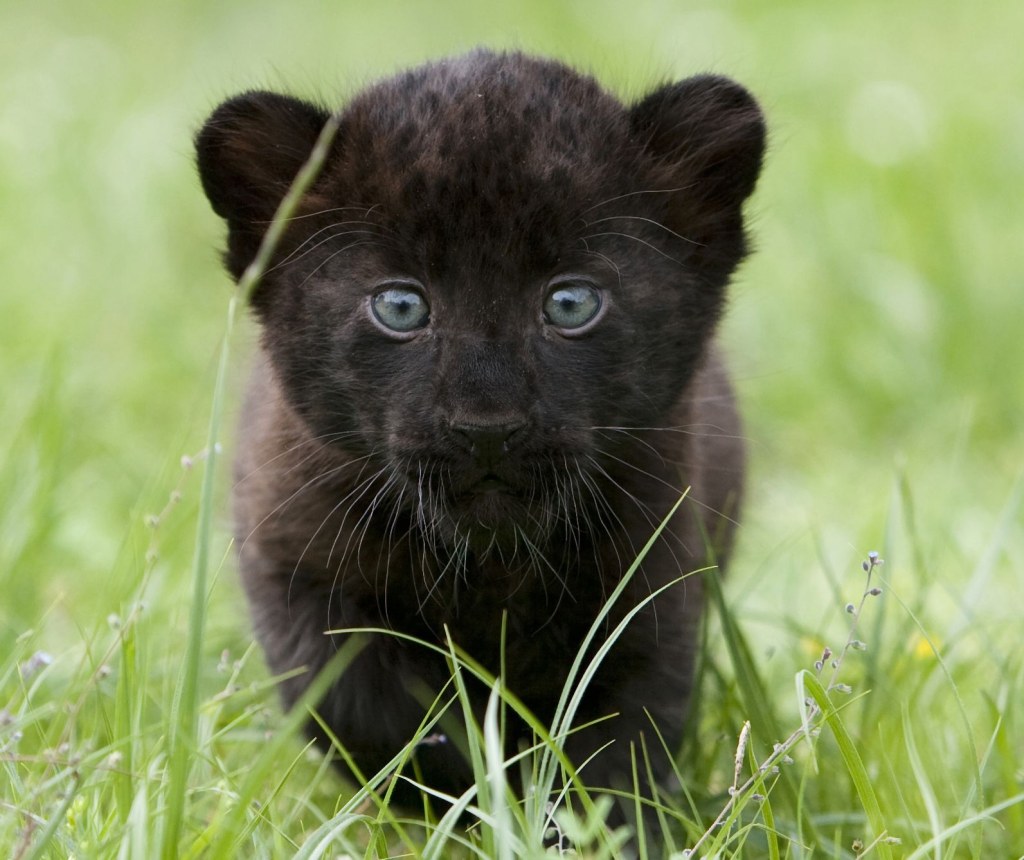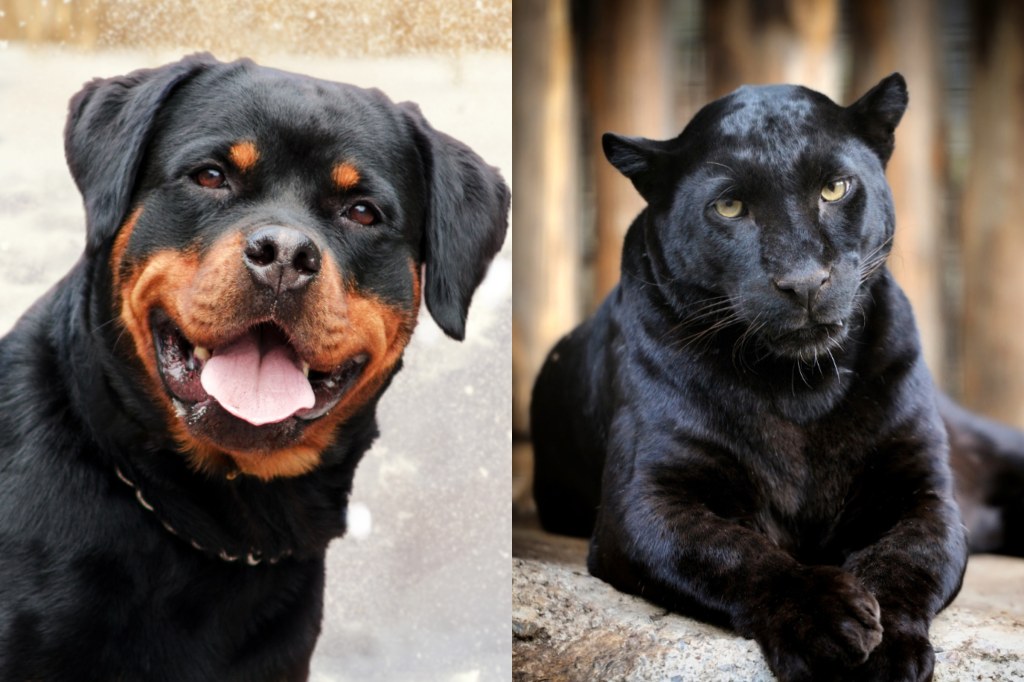Discover The Truth: Are Panthers Good Pets? Unveiling The Surprising Reality And Taking Action
Are Panthers Good Pets?
Introduction
Hello Pets Lover, welcome to our article about whether panthers make good pets. Panthers are majestic and powerful creatures that are often associated with strength and beauty. Many people are fascinated by the idea of keeping a panther as a pet, but it is important to understand the realities and responsibilities that come with it. In this article, we will explore the pros and cons of owning a panther as a pet, as well as provide important information for those considering this unique and exotic pet.
Now, let’s dive into the details to determine if panthers are suitable pets for you.
2 Picture Gallery: Discover The Truth: Are Panthers Good Pets? Unveiling The Surprising Reality And Taking Action


What are Panthers?
🐆 Panthers, also known as black panthers, are actually melanistic color variants of other big cat species, such as leopards and jaguars. Their dark fur makes them appear all black, but under certain lighting conditions, their spots or rosettes can be seen. Panthers are native to various regions around the world and are known for their agility, strength, and hunting skills.
Physical Characteristics
Panthers are large cats, with males reaching lengths of up to 7 feet and weighing between 100 to 250 pounds. Females are slightly smaller, typically ranging from 5 to 6 feet in length and weighing around 70 to 150 pounds. They have strong jaws, sharp claws, and muscular bodies, which allow them to climb trees, swim, and pounce on their prey with great agility.
Behavior and Temperament

Image Source: pennlive.com
Despite their wild and fierce appearance, panthers can display calm and docile behavior when raised in captivity. However, it’s important to note that they are still wild animals with natural instincts. Panthers are solitary creatures, and in the wild, they have large territories that they mark and defend. They are skilled hunters and require a diet that consists mainly of meat. Owning a panther requires a deep understanding of their behavior and a commitment to providing proper care and enrichment.
Legal Considerations
Before considering a panther as a pet, it is crucial to research and understand the legalities surrounding their ownership. In many places, owning a panther or any other big cat species is prohibited without special permits and licenses. These regulations are in place to protect both the welfare of the animals and the safety of the public. Make sure to consult local laws and regulations or contact relevant authorities to ensure compliance before proceeding.
Who Should Consider Owning a Panther?
🐾 While panthers may be mesmerizing creatures, they are not suitable pets for everyone. Owning a panther requires a significant commitment of time, effort, and resources. It is essential to consider the following factors before deciding if a panther is the right pet for you:
Experience with Exotic Pets
Owning a panther is not recommended for first-time pet owners or those without prior experience with exotic animals. Panthers have specific needs and behaviors that may be challenging to understand and cater to without previous knowledge or experience.
Sufficient Space

Image Source: newsweek.com
Panthers need ample space to roam, climb, and exercise. Keeping them confined to small areas can lead to physical and psychological issues. A large and secure enclosure, preferably with access to outdoor spaces, is essential for their well-being.
Financial Resources
Owning a panther can be costly. Expenses include the enclosure setup, veterinary care, proper diet, and licensing fees. It’s crucial to have the financial resources to provide for the panther’s needs throughout its lifespan, which can be over 15 years.
Time and Commitment
Panthers require regular feeding, cleaning, and mental stimulation. They need daily interaction and enrichment to prevent boredom and ensure their overall well-being. Make sure you have the time and dedication to meet these requirements before considering a panther as a pet.
When is the Right Time to Own a Panther?
📅 Panthers are not suitable pets for impulsive decisions. The decision to own a panther should be well-thought-out, taking into consideration various factors, including personal readiness and circumstances. Here are some indicators that it may be the right time to own a panther:
Knowledge and Research
Before bringing a panther into your life, it is crucial to have a deep understanding of their behavior, needs, and the commitment required to care for them. Extensive research and consultation with experts can help ensure a successful and fulfilling experience.
Stable Living Situation
Owning a panther requires stability in terms of housing and lifestyle. If you are frequently moving or have uncertain living arrangements, it may not be the right time to own a panther. Stability provides a sense of security and consistency, which is essential for the well-being of the panther.
Availability of Resources
Ensure you have access to the necessary resources, including financial means, suitable living space, and reliable veterinary care. Panther ownership comes with financial responsibilities, so it’s crucial to assess and confirm the availability of these resources before making a commitment.
Where Can You Get a Panther?
🌍 Acquiring a panther is not as simple as visiting a local pet store. Panthers are considered exotic animals and are not readily available for purchase or adoption in most places. Here are some options to consider:
Exotic Animal Breeders
There are specialized exotic animal breeders who may have panther cubs available for sale. It is essential to research and choose a reputable and licensed breeder who follows ethical practices and prioritizes the welfare of the animals.
Wildlife Sanctuaries and Rescues
Some wildlife sanctuaries and rescues may have panthers that are unable to be released into the wild due to injury or other reasons. In certain cases, these organizations may offer panthers for adoption to individuals who meet specific criteria.
Legal Considerations
Before acquiring a panther, ensure that it is legally permitted in your area. Some places have strict regulations or outright bans on owning exotic animals. Failure to comply with these laws can result in legal consequences and harm to both the panther and yourself.
Why Are Panthers Not Recommended as Pets?
❌ While panthers may be fascinating and beautiful creatures, there are several reasons why they are not recommended as pets. It’s crucial to understand these reasons before considering owning a panther:
Physical and Safety Risks
Adult panthers are powerful and potentially dangerous animals. Their natural instincts and strength can pose risks to both their owners and the public. Even if they are raised in captivity, their wild nature can manifest unexpectedly, leading to accidents or injuries.
Lack of Domestication
Panthers are wild animals with centuries of evolutionary adaptation to their natural environments. Despite being bred in captivity, they retain their wild instincts and behaviors. Their needs and behaviors cannot be easily met within a domesticated setting, leading to potential stress and health issues.
Conservation Concerns
These majestic creatures are endangered species, and their populations are declining in the wild. Captive breeding for pets can contribute to the illegal wildlife trade and the demand for exotic animals, further endangering their survival in their natural habitats.
How Can You Help Panthers?
🙌 While owning a panther as a pet may not be feasible or recommended, there are still ways you can contribute to their well-being:
Support Conservation Efforts
Donate to reputable wildlife conservation organizations that focus on preserving and protecting panthers and their habitats. By supporting these initiatives, you can help ensure the survival of these magnificent creatures for future generations.
Spread Awareness
Educate others about the importance of preserving panther populations and the negative consequences of the exotic pet trade. Encourage responsible tourism and discourage the exploitation of these animals for entertainment purposes.
Volunteer or Intern at Wildlife Sanctuaries
Contribute your time and skills to organizations that rescue, rehabilitate, and care for panthers and other wildlife in need. Volunteering or interning at wildlife sanctuaries can provide hands-on experience and allow you to make a direct impact on the lives of these incredible creatures.
Advantages and Disadvantages of Owning a Panther
Advantages
1. Exotic Beauty: Panthers are undeniably stunning creatures with their sleek black fur and graceful movements. Owning a panther can be a source of pride and awe.
2. Unique Bond: When properly cared for and nurtured, panthers can form strong bonds with their owners. This bond can create a unique and fulfilling relationship.
3. Educational Value: Owning a panther offers opportunities for education and raising awareness about conservation. It can be an excellent platform to teach others about the importance of protecting these magnificent animals and their habitats.
Disadvantages
1. Legal Restrictions: Owning a panther may be illegal or heavily regulated in many areas. Understanding and complying with these regulations can be challenging and limiting.
2. Financial Burden: Panthers are expensive to care for due to their specialized dietary needs, veterinary care, and enclosure requirements. The financial burden can be overwhelming for many individuals.
3. Safety Concerns: Panthers are powerful animals with the potential to cause harm. Despite being raised in captivity, their wild instincts can still pose risks to their owners, other pets, and the public.
Frequently Asked Questions (FAQs)
1. Can panthers be domesticated like house cats?
No, panthers cannot be domesticated like house cats. They are wild animals with specific needs and behaviors that cannot be fully met in a domesticated setting.
2. Are panthers good with children?
No, panthers are not suitable pets for households with children. Their size, strength, and predatory instincts make them potentially dangerous in close proximity to children.
3. Can I keep a panther in an apartment?
No, keeping a panther in an apartment is not recommended due to their need for ample space, exercise, and stimulation. Panthers require large and secure enclosures to thrive.
4. Are there any alternatives to owning a panther?
Yes, if you are fascinated by panthers but recognize the challenges of owning one, consider supporting conservation organizations, visiting wildlife sanctuaries, or volunteering to work with big cats in a professional capacity.
5. Are there any legal consequences for owning a panther without proper permits?
Yes, owning a panther without the required permits and licenses can result in legal consequences, including fines, confiscation of the animal, and potential criminal charges. It is essential to comply with local laws and regulations.
Conclusion
In conclusion, while panthers may be awe-inspiring creatures, they are not suitable pets for most people. Their wild nature, specific needs, and legal restrictions make owning a panther a challenging and potentially risky endeavor. Instead, it is advisable to support conservation efforts and educate others about the importance of protecting these magnificent animals in their natural habitats. Together, we can ensure the survival and well-being of panthers for future generations.
Final Remarks
📢 Disclaimer: The information provided in this article is for educational purposes only and should not be considered as professional advice. The decision to own a panther or any other exotic animal should be made after thorough research, consultation with experts, and compliance with local laws and regulations. The welfare and conservation of these animals should always be the top priority.
This post topic: Pets



